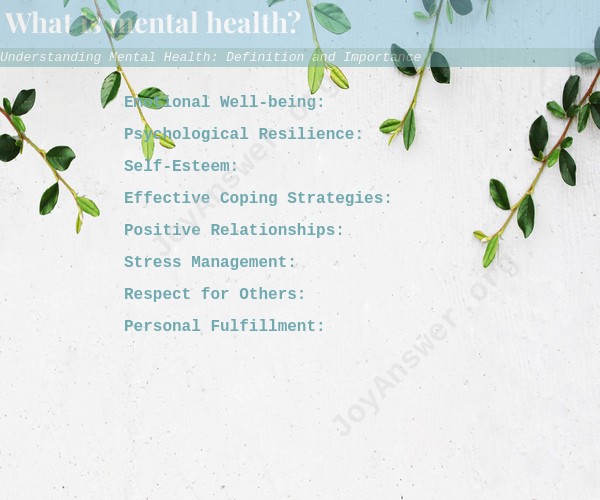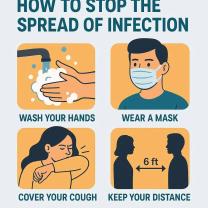What is mental health?
Mental health refers to a person's emotional, psychological, and social well-being, encompassing their emotional and cognitive functioning. It plays a crucial role in how individuals think, feel, act, and relate to others. Good mental health contributes to a person's overall quality of life, allowing them to cope with stress, form positive relationships, work productively, and make meaningful contributions to their communities.
Key aspects of mental health include:
Emotional Well-being: The ability to understand, express, and manage a wide range of emotions in a healthy way, including joy, sadness, anger, and fear.
Psychological Resilience: The capacity to bounce back from adversity, cope with life's challenges, and adapt to change while maintaining a sense of purpose and optimism.
Self-Esteem: A positive self-perception and a healthy level of self-confidence, which contribute to a sense of self-worth.
Effective Coping Strategies: The ability to cope with stress, setbacks, and difficulties through healthy coping mechanisms, such as problem-solving and seeking support.
Positive Relationships: Forming and maintaining healthy, supportive relationships with family, friends, and community members, which provide social support and a sense of belonging.
Stress Management: The capacity to manage and reduce stress effectively, preventing it from becoming chronic or overwhelming.
Respect for Others: Treating others with empathy, kindness, and respect while fostering healthy, mutually satisfying relationships.
Personal Fulfillment: Pursuing activities and goals that provide a sense of purpose, satisfaction, and fulfillment.
Mental health is dynamic and can fluctuate throughout one's life. It is influenced by various factors, including genetics, brain chemistry, life experiences, and social and environmental conditions. Mental health challenges or disorders can arise when these factors interact in ways that disrupt a person's emotional and psychological well-being.
The importance of mental health cannot be overstated. Good mental health is essential for overall health and well-being, as it impacts every aspect of life, from personal relationships to work and daily functioning. Neglecting mental health can lead to the development of mental health disorders, reduced quality of life, and impaired physical health.
Promoting mental health involves recognizing the signs of distress or mental health disorders, seeking help when needed, and taking steps to maintain and improve mental well-being. This may include engaging in self-care practices, such as regular exercise, relaxation techniques, mindfulness, seeking therapy or counseling, and connecting with supportive communities. Mental health is a valuable and essential part of one's holistic health, and it deserves attention, care, and support.











